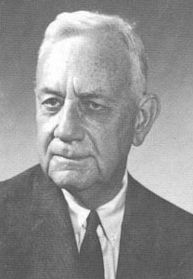A Quote by Karl Rove
Look, in 1800 the sainted Thomas Jefferson arranged to hire a notorious slanderer named James Callender, who worked as a writer at a Republican newspaper in Richmond, Va. Read some of what he wrote about John Adams. This was a personal slander.
Related Quotes
When John Adams - when - James Madison was writing - pretty much writing the Constitution, he got a letter from Thomas Jefferson, who was then-ambassador to France. And Jefferson said - I am paraphrasing - `Do not forget to keep habeas corpus and strengthen it.' That - in - that's the oldest English-speaking right. It goes back to the Magna Carta in 1215.
According to Adams, Jefferson proposed that he, Adams, do the writing [pf the Declaration of Independence], but that he declined, telling Jefferson he must do it. Why?" Jefferson asked, as Adams would recount. Reasons enough," Adams said. What can be your reasons?" Reason first: you are a Virginian and a Virginian ought to appear at the head of this business. Reason second: I am obnoxious, suspected and unpopular. You are very much otherwise. Reason third: You can write ten times better than I can.
[John] Adams's perception of Europe, and especially France, was clearly different than [Tomas] Jefferson's. For Jefferson, the luxury and sophistication of Europe only made American simplicity and virtue appear dearer. For Adams, by contrast, Europe represented what America was fast becoming - a society consumed by luxury and vice and fundamentally riven by a struggle between rich and poor, gentlemen and commoners.
The American world had - seemingly, at least - become a Jeffersonian world by the election of 1800, which placed Thomas Jefferson in the presidency. Jefferson had been Hamilton's rival in the new government's early years, and Hamilton has figured in the public memory almost as much for that rivalry as for his positive achievements.
The presidency made John Adams an old man long before there was television. As early as the nation's first contested presidential election, with Adams and Jefferson running to succeed Washington, you had a brutal, ugly, vicious campaign that was divisive and as partisan as anything we're experiencing today.
[John Adams and Tomas Jefferson] shared experience in 1775 - 1776 in bringing about the separation from Britain and their service in Europe cemented a friendship that in the end withstood the most serious political and religious differences that one could imagine, especially their differences over the French Revolution. It was probably Jefferson's obsession with politeness and civility that kept the relationship from becoming irreparably broken.































